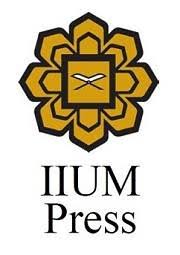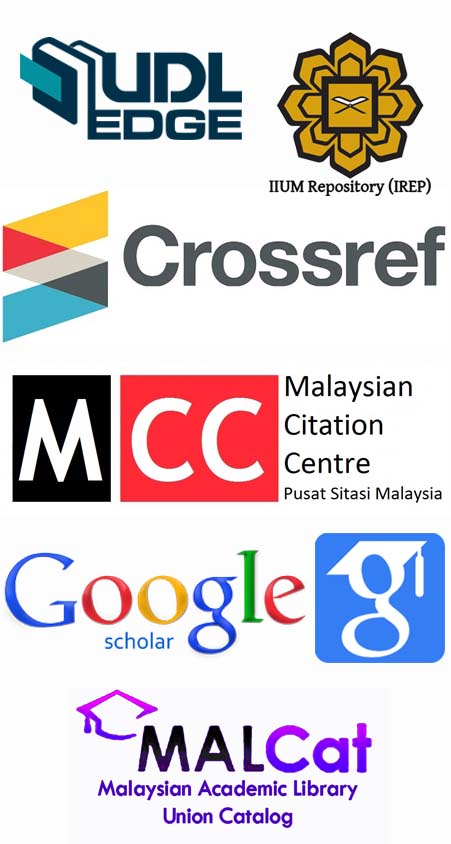Modern and Classical Scientific Readings of the Qurʾān: A Comparative Study of Abdul Wadud (d.2001) and al-Bayḍāwī (d.1286)'s Naturalistic Exegesis
DOI:
https://doi.org/10.31436/alburhn.v3i1.127Keywords:
Scientific exegesis, al-Bayḍāwī, Abdul Wadud, Islamic modernism, Islam and scienceAbstract
Among the trends of Islamic modernism is the propagation of the compatibility or similarity of the meaning of verses of the Qurʾān with modern scientific theories and observations of nature and the cosmos. Although this idea of compatibility is also advocated by several classical scholars in their exegesis of the Qurʾān, it never had so many proponents and such wide popularity among the general Muslim population as it has since the 20th century. Many proponents of scientific exegesis (tafsīr al-ʿilmī) claim that the Qurʾān contains descriptions of nature that are scientifically accurate, and which can only be understood correctly with current scientific knowledge, i.e. the true meaning of the these verses was not available to Muslims before the appearance of modern science. We will test this claim by comparing one such modern proponent's exegesis, Abdul Wadud (d. 2001), with that of a classical scholar, ʿAbd Allāh al-Baydāwī (d. 1286). Through this we can see if the modern 'scientific miracle' exegesis of the Qurʾān truly provides new or even better insights of these verses compared to classical rational exegesis. This article tries not to analyze the veracity of modern or classical exegesis, but their concept of the purpose of revelation, epistemology and worldview concerning nature, and how this is applied in their proposed exegesis of certain verses. In this comparative analysis of the scientific exegesis of Wadud and al-Bayḍāwī we will show that both their approaches to the Qurʾānic text is rational, focused on the inimitability of the Qu'ran (ʿijāz al-Qurʾān), and incorporate their contemporary natural philosophy into their exegesis, thereby linking revelation and nature.
Downloads
References
ʿAbd al-Razāq, Abū Bakr. Tafsīr ʿAbd al-Razzāq. Beirut: Dār al-Kutub al-ʿIlmiyyah, 1999.
Abdul Wadud, Syed. Gateway to the Quran. 3rd ed. Lahore: Khalid Publishers, 1996.
Abdul Wadud, Syed. Phenomena of Nature and the Quran. Lahore: Sayed Khalid Wadud, 1971.
Abdul Wadud, Syed. The Heavens, the Earth, and the Quran. 2nd ed. Lahore: Khalid Publishers, 1998.
Abdul-Raof, Hussein. Theological Approaches to Qurʾanic Exegesis: A Practical Comparative-Contrastive Analysis. Abingdon: Routledge, 2012.
Abrahamov, Binyamin. Islamic Theology: Traditionalism and Rationalism. Edinburgh: Edinburgh University Press, 1998.
al-Bayḍāwī, ʿAbd Allāh. Anwār al-Tanzīl wa Asrār al-Tāʾwīl. 2nd ed. Beirut: Dār Sādr, 2004.
---------------------------. Ṭawāliʿ al-Anwār min Matāliʿ al-Anẓār. Cairo: Maktabah al-Azhariyyah li’l-Turāth, n.d.
al-Dihlawī, Shah Waliy Allāh. Hujjat Allāh al-Bālighah. India: Maktabah Hijāz, 2010.
Alserougij, M., and Muhammad Mutawalli Sha’rawi. The Miracles of The Qurʾān. United Kingdom: Dar Al Taqwa, 2009.
al-Zamakhsharī, Abū al-Qāsim. al-Kashshāf ʿan Ḥaqāʾiq al-Tanzīl Wa ʿUyūn al-ʾAqāwīl fī Wujūh al-Taʾwīl. Beirut: Dār al-Kitāb al-ʿArabi, 1987.
Ansari, Asloob, and Abdur Raheem Kidwai, ed. In Sir Syed’s Tafsir al-Quran. New Delhi: Sang-e-Meel Publications, 1998.
Behn, Wolfgang, and Ignaz Goldziher. Schools of Koranic Commentators: With an Introduction on Goldziher And Hadith From ‘Geschichte Des Arabischen Schrifttums’ By Fuat Sezgin. Wiesbaden: Harrassowitz in Kommission, 2006.
Dhahabī, Muhammad al-Sayd. Al-Tafsīr Wa Al-Mufassirūn. Cairo: Maktabah Wahbah, 1996.
Golshani, Mehdi. The Holy Quran And the Sciences of Nature: A Theological Reflection. New York: Global Scholarly Publications, 2003.
Guessoum, Nidhal. Islam’s Quantum Question: Reconciling Muslim Tradition and Modern Science. United States: I. B. Tauris & Company, 2010.
Gürol, Ender, and Caner Taslaman. The Quran: Unchallengeable Miracle. Istanbul, Turkey: Nettleberry/Citlembik Publications, 2006.
Halverson, Jeffry R. Theology and Creed in Sunni Islam: The Muslim Brotherhood, Ashʿarism, And Political Sunnism. New York: Palgrave Macmillan, 2010.
Hawi, Sami S. Islamic Naturalism and Mysticism - A Philosophic Study Of Ibn Tufayl’s Hayy Bin Yaqzan: A Philosophic Study Of Ibn Tufayl’s Hayy Bin Yaqzan. Leiden: Brill Academic Publishers, 1974.
Howard, Damian. Being Human in Islam: The Impact of The Evolutionary Worldview. United States: Routledge, 2011.
Mol, Arnold Yasin. "The Denial of Supernatural Sorcery in Classical and Modern Sunni Tafsir of Sura Al-Falaq (113:4): A Reflection on Underlying Constructions". al-Bayan Journal 11, no. 1 (2013): 15-32. doi:10.11136/jqh.1311.01.02.
Nasr, Seyyed Hossein. An Introduction to Islamic Cosmological Doctrines: Conceptions of Nature and Methods Used for Its Study by The Ikhwān al-Ṣafāʼ, al-Bīrūnī, And Ibn Sīnā. Albany: State University of New York Press, 1993.
Pannell, Alastair, and Maurice Bucaille. Bible, The Qurʾān, And Science: The Holy Scriptures Examined in The Light of Modern Knowledge. Moultan: DarulFikr, 1977.
Parwez, Ghulam Ahmed. Islam: A Challenge to Religion. Lahore: Tolu-e-Islam Trust, 1996.
Pollock, James, Edwin Elliot Calverley, and ʿAbd Allāh al-Baydawi. Nature, Man and God In Medieval Islam: ʿAbd Allah Baydawi’s Text, Ṭawāliʿ al-Anwār Min Matāliʿ al-Anẓār, Along With Mahmud Isfahani’s Commentary, Maṭāliʿ al-Anẓār, Sharḥ Ṭawāliʿ al-Anwār. Leiden: Brill, 2001.
Qasmi, Ali Usman. Questioning the Authority of The Past: The Ahl Al-Qurʾān Movements in The Punjab. Karachi: Oxford University Press, 2011.
Rippin, Andrew, and MJ Kister, ed. In Adām: A Study of Some Legends in Tafsīr and Ḥadīth Literature. New York: Oxford University Press, 1988.
Sulaymān, ‘Abbās, and ʿAbd Allāh al-Baydawi. Ṭawāliʿ al-Anwār Min Matāliʿ al-Anẓār. Cairo: Maktabah al-Azhariyyah li-lTurāth, n.d.
Taylor, Richard, Peter Adamson, and Marwan Rashed, ed. In Natural Philosophy. Cambridge, UK: Cambridge University Press, 2005.
Downloads
Published
How to Cite
Issue
Section
License
In general, reusing or reproducing substantial portions of al-Burhān content requires permission. This includes the use of text, figures, tables, multimedia content, and any other material published in any issues of al-Burhān Journal of Qur'an and Sunnah Studies. For some instances, al-Burhān may make its content freely viewable; however, such material may require permission for reuse. To seek permission, please contact the editorial.









